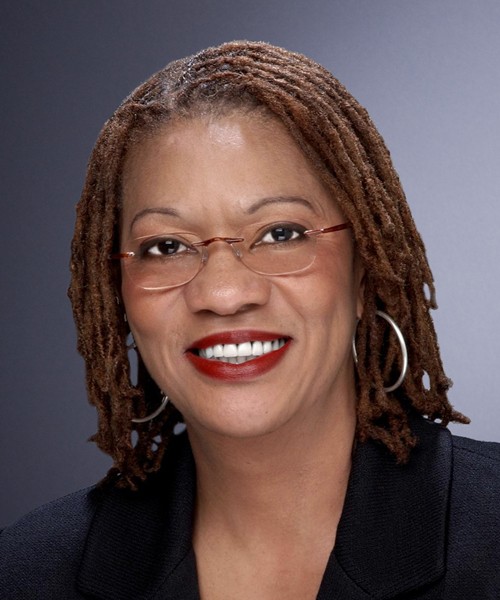This is the deadline week for candidates in the 2020 Memphis city election, and by Thursday, July 18th, some of the mysteries that have lingered for weeks will have been resolved.
We will know which (if any) of the four races that Justin J. Ford has pulled petitions for — mayor; City Court clerk; city council District 6; or city council, Super District 8, Position 1 — that he intends to run in.

Justin J. Ford
Ford’s case is interesting. His political career so far has included two successes, each netting him a term in the Shelby County Commission. His first win was in 2010, for one of the three positions available in what was then a multi-seat District 3. Then, in 2014, after single-district reapportionment, he was able to win again in the newly created District 9, which covered a smaller slice of the previous District 3.
In both cases, the South Memphis district served by Ford was one in which the extended Ford family has always possessed political power. His father, Joe Ford, represented the District 3 seat before him.
Justin Ford also has three losses on his record — for City Court clerk in 2015, for the 9th District Congressional seat in 2016, and for the District 29 state Senate seat in 2018. He also was charged with domestic assault of a girlfriend in 2017 and offered an Alford plea, which combines an admission of guilt with a technical dismissal. Ford also has been assessed with some $20,000 in civil penalties for violating rules relating to his business, the Justin Ford Funeral Home.
So, suffice to say much is at stake for Ford in this year’s city election — arguably, his last chance at a viable long-term political career — and his choice of which race to run in is crucial.
A District 6 race would pit him against a field including Edmund Ford Sr., who is not only his uncle but the odds-on favorite to regain a seat he once held. Running for the District 8, Position 1 seat would pit him, along with a large field of others, some with name recognition, against a short-term incumbent, Gerry Curry. As for the mayor’s race: The reality is that he would have a hard time being taken seriously in that massive field, in which other challengers loom larger and the incumbent, Jim Strickland, has a million dollars in cash reserves and huge odds in his favor. The race for City Court clerk also has a large field, with former Councilmen Myron Lowery and Joe Brown being the biggest names.
There’s not a slam dunk among those options. Whichever race Justin Ford may have chosen by the time you read this will require maximum effort on Ford’s part, plus significant resources and luck, big-time, if he wishes to avoid the permanent obscurity possessed by, say, one Roderick Ford, who is unrelated to the political Fords but runs in every election in the forlorn hope that voters will mistake him for somebody else.

Mauricio Calvo
• Another would-be candidate who began the week with decisions to make is Mauricio Calvo, who has been a candidate for serious public distinction for years as executive director of Latino Memphis and as a member of the board of directors of the Greater Memphis Area Chamber of Commerce.
Calvo, Mexican-born but a naturalized U.S. citizen, has been pondering a race for the City Council in Super District 9 and drew petitions for Positions 1, 2, and 3. Each of those choices presented difficulties.
In Position 1, he could conceivably be up against six opponents, two of whom — Erika Sugarmon and Chase Carlisle — are regarded as the main competitors and had already filed for the position. In Position 2, the field would appear to be a mite smaller, but one of the two candidates already filed is the incumbent, Ford Canale. And in Position 3, Calvo would face a field containing highly touted Jeff Warren, the leading fund-raiser among council candidates, and Cody Fletcher, another candidate with a serious head start.
In addition to the problem of choosing the optimal ballot position of the three — all of which relate to the same sprawling geographical area comprising the eastern half of the city — Calvo faces another self-created challenge, the fact that he has, for better or for worse, outed himself as gay.
Calvo did so in a June 19th post on his Facebook page. As he explained, “I wanted people to know who I am. … I wanted supporters and voters to know who I am. My mom is 84, and I wanted her to know who I am. In my everyday life, I have the privilege of working and interacting with many inspiring people within and outside of the Memphis community. I wanted them to know who I am. Speaking my truth took a weight that I have carried for decades off of my shoulders.”
Family reasons were important in Calvo’s decision to come out. His wife, Yancy Villa-Calvo, an artist who collaborates with him on “High Ground News,” a social-activist newsletter, had known for years and remains supportive. “And, of course, there are my loving children: Santiago, Anna, and Carolina,” Calvo added. “After speaking with them earlier this year, I believed it would be inconsistent, unhealthy, and dangerous to encourage them to embrace themselves and others while keeping their father’s truth a secret.”
The responses to Calvo in comments from others on his Facebook page have been resoundingly supportive, and they reflect a generous swath of the Super-District population. It remains to be seen what the impact of his decision has on his candidacy or on his widely acclaimed place in the city’s life, but in the meantime, he would seem to have evinced an indisputable personal bravery that can only be regarded as a triumph in its own right.
• The probable pairing for next year’s U.S. Senate race became apparent this week with the endorsement of Republican Bill Hagerty, current Ambassador to Japan and former Tennessee Economic Development Commissioner, by President Donald Trump for the seat being vacated by Lamar Alexander.
Meanwhile, Nashville lawyer and Iraq war vet James Mackler, a Democrat, has been endorsed by former Governor Phil Bredesen, for whom Mackler dropped out of last year’s Senate race, won ultimately by then-Congressman Marsha Blackburn of the GOP.
 Latino Memphis
Latino Memphis  Jackson Baker
Jackson Baker 
